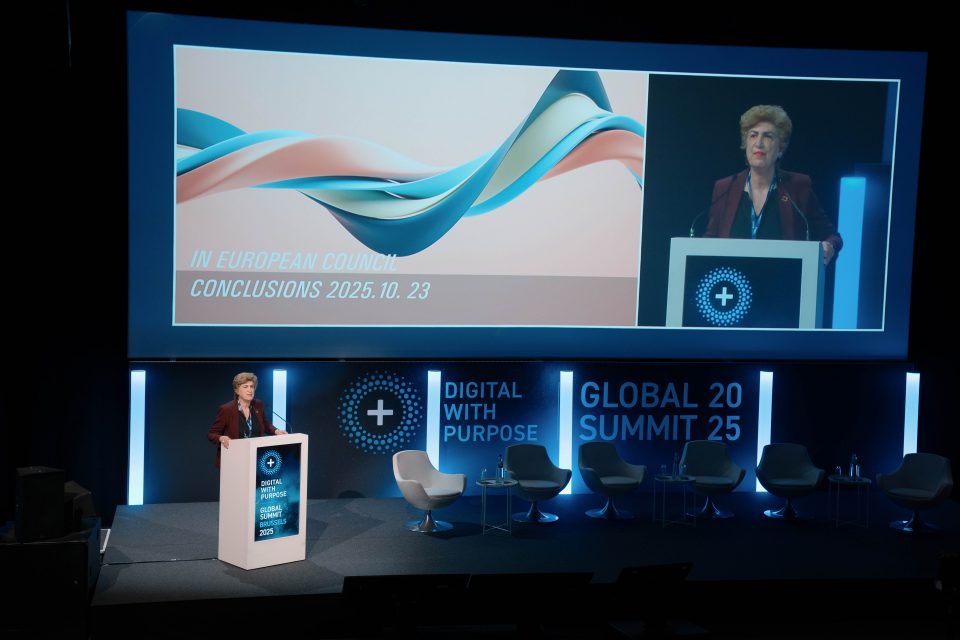Technological sovereignty, algorithmic transparency, European regulation, and the interplay between AI & Competitiveness are the key topics shaping the agenda of the International Advisory Council on Artificial Intelligence, which was established by the Spanish Government last year and convened for its second meeting in Madrid. The Council’s mission is to foster an innovative, safe, and ethical artificial intelligence technologies that serve the public interest while safeguarding both citizens and the environment. The Council is presided by Professor Manuel Castells, and it includes Erika Staël von Holstein, Chief Executive Officer of Re-Imagine Europa, among its members.
The discussions centred on critical aspects of AI development and its future, highlighting potential trends, challenges and opportunities. During the session, the Council emphasized the importance of technological sovereignty for Europe, particularly as the discourse surrounding the EU’s strategic autonomy intensifies.
Technological Sovereignty, Algorithmic Transparency, European Regulation, and AI and Competitiveness, key topics addressed
Furthermore, the Council reaffirmed its commitment to supporting an AI that foster human progress, upholds democratic values, and avoids the use of disinformation as a tool of manipulation, aligning with the vision of the European Commission. “Through our Artificial Intelligence, Europe is already leading the way on making AI safer and more trustworthy, and on tackling the risks stemming from its misuse,” affirmed Ursula von der Leyen in her 2024-2029 Political Guidelines.
Therefore, among the issues addressed by the members were the adaptation of national legislation to align with European frameworks on artificial intelligence, digital services, and media freedom. The Council also outlined the proposal to create a new division within the United Nations Office for Digital and Emerging Technologies in Valencia, dedicated to advancing research on artificial intelligence governance. In addition, it was presented the National Artificial Intelligence Strategy, which includes the proposal to create the Spanish Agency for the Supervision of Artificial Intelligence (AESIA), the first of its kind in Europe.

The Council is chaired by Manuel Castells, Professor of Communication Technology and Society at the University of Southern California, and includes Paul Adler, Professor of Management and Organisation, Sociology and Environmental Studies at the University of Southern California; Francesca Bria, Honorary Professor at the Institute of Innovation and Public Purpose of the University of London; Vint Cerf., considered as the one of the “fathers” of the Internet and awarded multiple awards, including the National Medal of Technology and the Turing Award; Kate Crawford, Research Professor at USC Annenberg; Jerome A. Feldman, Professor Emeritus of Electrical Engineering and Computer Science at the University of California, Berkeley and leader in Computer Engineering and Cognitive Science; Luciano Floridi, Director of the Center for Digital Ethics and Professor in the Cognitive Sciences Program at Yale University; Jeroen van den Hoven, Professor of Ethics and Technology at the Delft University of Technology and Scientific Director of the Delft Design for Values Institute; Carissa Véliz, Associate Professor at the Institute of AI Ethics at the University of Oxford, author of “Privacy is Power”; and Erika Widegren Staël von Holstein, executive director of Re-Imagine Europa and expert on AI, Narratives and political polarisation.




